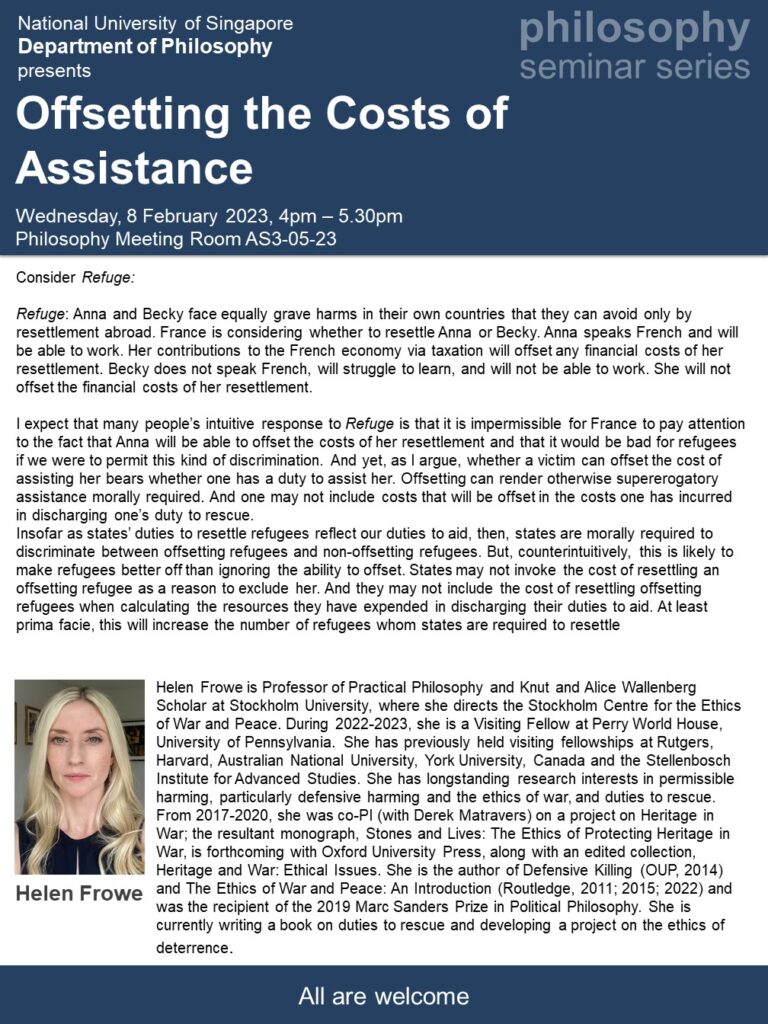“Offsetting the Costs of Assistance” by Professor Helen Frowe

Abstract
Consider Refuge:
Refuge: Anna and Becky face equally grave harms in their own countries that they can avoid only by resettlement abroad. France is considering whether to resettle Anna or Becky. Anna speaks French and will be able to work. Her contributions to the French economy via taxation will offset any financial costs of her resettlement. Becky does not speak French, will struggle to learn, and will not be able to work. She will not offset the financial costs of her resettlement.
I expect that many people’s intuitive response to Refuge is that it is impermissible for France to pay attention to the fact that Anna will be able to offset the costs of her resettlement and that it would be bad for refugees if we were to permit this kind of discrimination. And yet, as I argue, whether a victim can offset the cost of assisting her bears whether one has a duty to assist her. Offsetting can render otherwise supererogatory assistance morally required. And one may not include costs that will be offset in the costs one has incurred in discharging one’s duty to rescue.
Insofar as states’ duties to resettle refugees reflect our duties to aid, then, states are morally required to discriminate between offsetting refugees and non-offsetting refugees. But, counterintuitively, this is likely to make refugees better off than ignoring the ability to offset. States may not invoke the cost of resettling an offsetting refugee as a reason to exclude her. And they may not include the cost of resettling offsetting refugees when calculating the resources they have expended in discharging their duties to aid. At least prima facie, this will increase the number of refugees whom states are required to resettle.
Biography
Helen Frowe is Professor of Practical Philosophy and Knut and Alice Wallenberg Scholar at Stockholm University, where she directs the Stockholm Centre for the Ethics of War and Peace. During 2022-2023, she is a Visiting Fellow at Perry World House, University of Pennsylvania. She has previously held visiting fellowships at Rutgers, Harvard, Australian National University, York University, Canada and the Stellenbosch Institute for Advanced Studies. She has longstanding research interests in permissible harming, particularly defensive harming and the ethics of war, and duties to rescue. From 2017-2020, she was co-PI (with Derek Matravers) on a project on Heritage in War; the resultant monograph, Stones and Lives: The Ethics of Protecting Heritage in War, is forthcoming with Oxford University Press, along with an edited collection, Heritage and War: Ethical Issues. She is the author of Defensive Killing (OUP, 2014) and The Ethics of War and Peace: An Introduction (Routledge, 2011; 2015; 2022) and was the recipient of the 2019 Marc Sanders Prize in Political Philosophy. She is currently writing a book on duties to rescue and developing a project on the ethics of deterrence.

